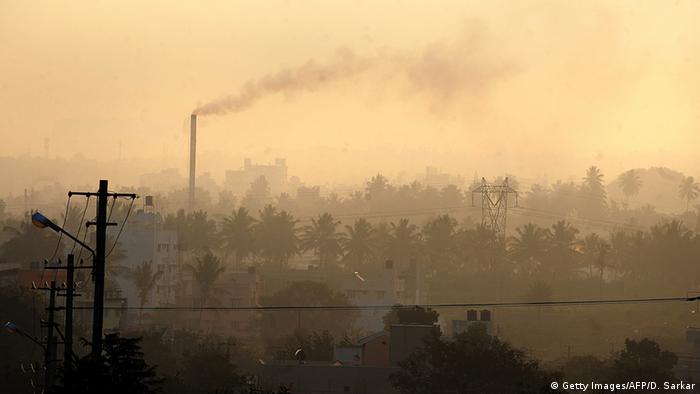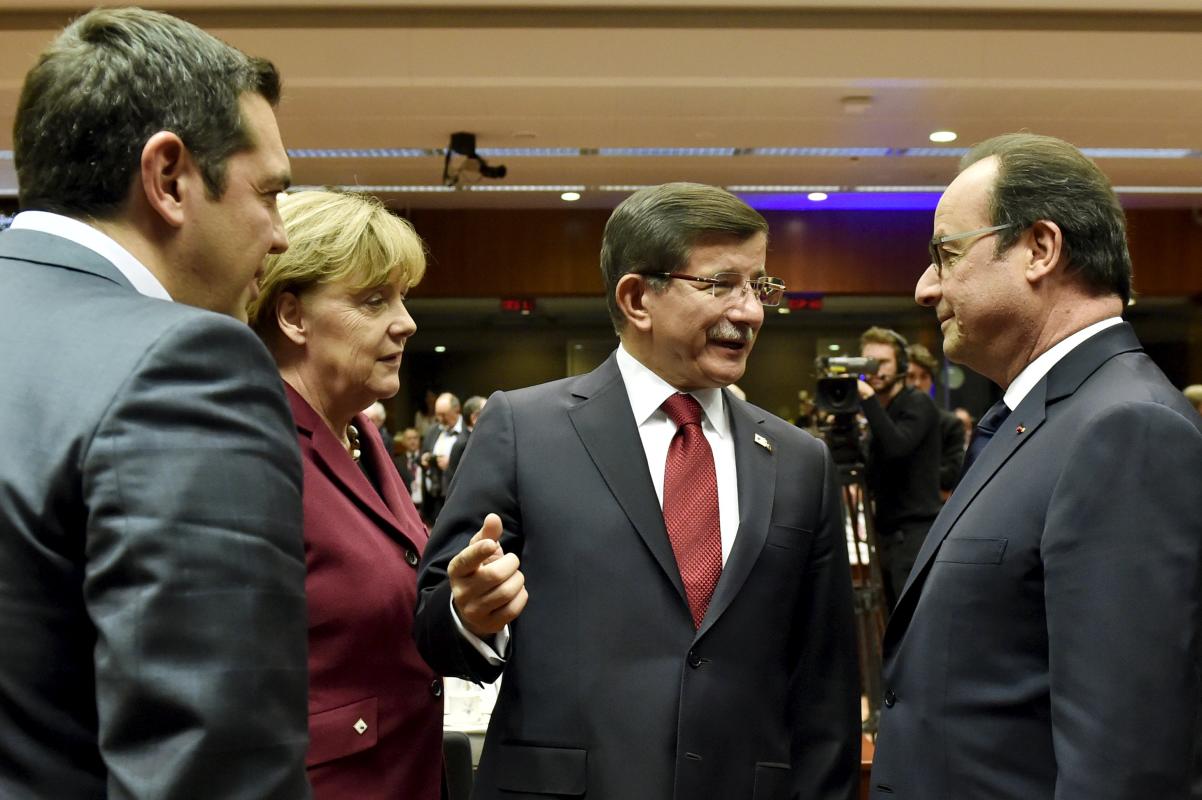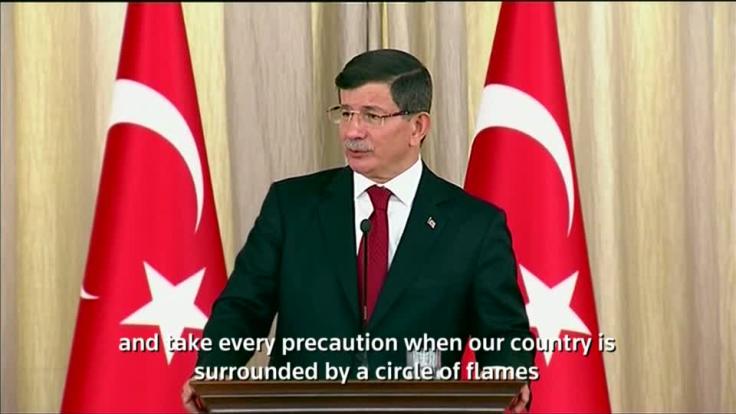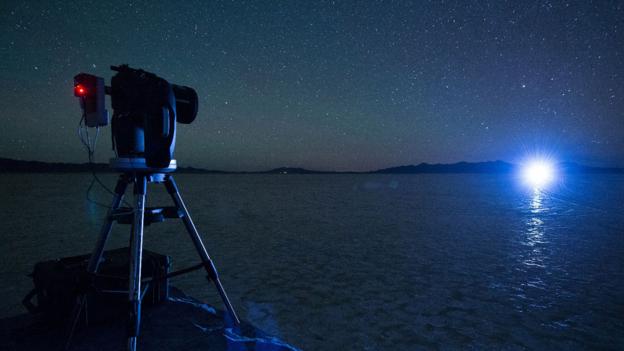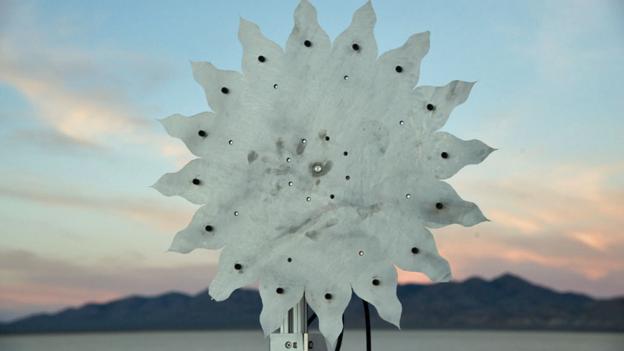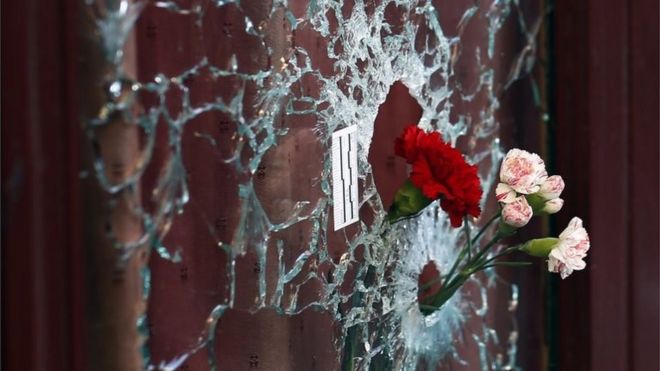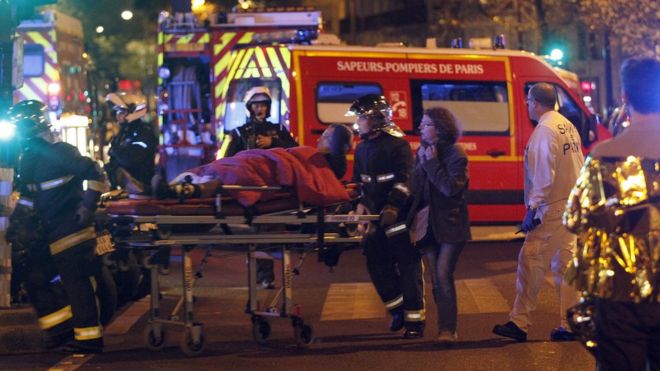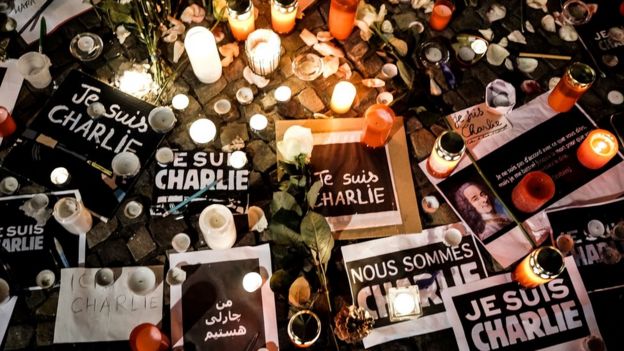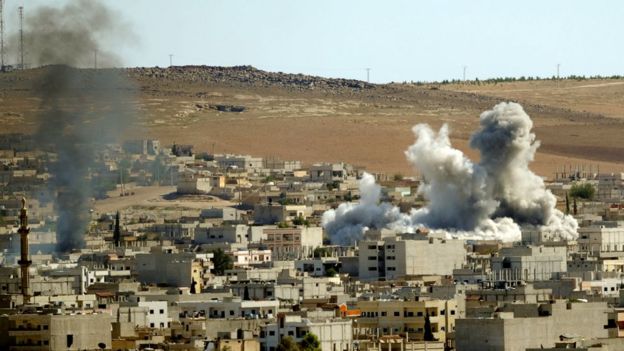President Barack Obama said the UN climate conference in Paris could be a "turning point" in global efforts to limit future temperature rises.
Negotiators from 195 countries will try to reach a deal within two weeks aimed at reducing global carbon emissions and limiting global warming to 2C (3.6F).
Leaders from 147 nations have been addressing the meeting, known as COP21.
President Obama urged negotiators to deliver a meaningful deal, because the "next generation is watching".
He told delegates: "Climate change could define the contours of this century more than any other (challenge).
"I came here personally to say the United States not only recognizes the problem but is committed to do something about it."
He added that recent years had shown that the global economy had grown while emissions had remained flat, breaking the old arguments for inaction "that economic growth and environmental protection were in conflict".
Russian President Vladimir Putin also addressed the conference.
During negotiations for the preceding Kyoto Protocol, Russia was the last industrialized nation to ratify the global agreement, allowing the landmark deal to come into force in 2001.
Echoing President Obama, Mr Putin said: "We have demonstrated we can ensure economic development and take care of our environment at the same time."
In a diplomatic play on semantics, probably to highlight the differing points of view between industrialized and emerging economies, Chinese President Xi Jinping told the conference he did not see the Paris talks as a turning point nor a "finish line, but a new starting point".
He said that climate change went beyond national borders and that it was "a shared mission for all mankind", before reiterating China's pledge to start cutting its emissions from a peak in 2030.
So what can we glean from the warm words and good intentions of the leaders?There are certainly positive omens. Leader after leader sang the same hymn - climate change is a huge challenge, only co-operation on a global level can solve it, and my country is doing great! Still, there were obvious divisions. Progress may or may not happen over the next two weeks.
One negotiator said the whole idea was for the leaders to come, speak and happily be on their way without toppling this carefully constructed applecart. Unlike in Copenhagen in 2009.
"The leaders fully understand the political nature, the political difficulties. They are coming here to provide maneuvering guidance," he said with a hint of irony.
"And we as negotiators will then have to fix it."
British Prime Minister David Cameron used his address to consider how future generations would respond to the idea that it was "too difficult" for this generation of politicians to reach an agreement in 2015.
"Our grandchildren would ask why it was so difficult," he said, before listing how progress had been made in delivering climate policy, such as financing, carbon budgets and technological research and development.
"Instead of making excuses to our children and grandchildren, we should be taking action," Mr Cameron stated.
Tuvalu Prime Minister Enele Sopoaga made a stark observation in his passionate address: "If we save Tuvalu, we will surely save the world."
"Like other nations in the Pacific, our survival depends on the decisions we take here in Paris," he said, reflecting the concerns of many Small Island States (SISs) around the globe.
"We stand on a cliff edge. Either we stand united and agree to combat climate change, or we all stumble and fall."
Major points of contention include:
- Limits: The UN has endorsed a goal of limiting global warming to no more than 2C over pre-industrial levels by the end of the century. But more than 100 poorer countries and low-lying, small-island states are calling for a tougher goal of 1.5C.
- Fairness: Developing nations say industrialized countries should do more to cut emissions, having polluted for much longer. But rich countries insist that the burden must be shared to reach the 2C target.
- Money: One of the few firm decisions from the 2009 UN climate conference in Copenhagen was a pledge from rich economies to provide $100 billion (93 billion euros) a year in financial support for poor countries from 2020 to develop technology and build infrastructure to cut emissions. Where that money will come from and how it will be distributed has yet to be agreed.
However, assessments of the more than 180 national climate action plans submitted by countries to the summit suggest that if they are implemented, the world will see a rise of nearer to 3C.
Christiana Figueres, the head of the UN's climate change negotiations, told delegates that never before had a responsibility so great been in the hands of so few.
"The world is looking to you," she said. "The world is counting on you."
World leaders are attending the start of the two-week meeting to give impetus to the talks, after the high-profile failure of the Copenhagen summit in 2009.
Will this Summit be more successful?
For almost two decades now, countries around the world have consistently failed to reach an agreement on climate protection. Even the famous Kyoto Protocol of 1997 was not truly global, with only 37 industrialized countries pledging to meet climate goals.
Since then, there have been countless summits and dramatic calls to action - but effectively no results. The UN climate summit in Paris will rely on a new formula: Countries will pledge to reduce their emissions by amounts they determine themselves. These so-called “Intended Nationally Determined Contributions" will then be reviewed later.
But will these politicians take altruistic action for the common good of the planet? It's very doubtful, unless, it is aligned with their self interest. In climate negotiations, countries have strong incentives to go for a free ride, waiting for others to act while not reducing their own emissions.
The United Nations' top climate director, Christiana Figueres, had to admit the pledges are not sufficient to reach the big goal of limiting global warming to less than 2 degrees . She added that she hopes the pledges are not the final word in what countries are ready to do.
But actually, it's quite easy to bridge the huge gap between countries' self-interests and global climate goal.
One carbon price for all
Instead of endlessly haggling over emission goals, the international community should simply focus on a global price for carbon emissions - and observe the principle of reciprocity.
That means: I will do something if you do something, and I won't if you won't. I will apply a carbon price in my economy if everyone else applies the same carbon price in their economy.
Countries would be free to choose how the carbon price would be reached - be it through emissions trading schemes, a carbon tax or other means. Even in countries who don't care about climate change, carbon taxes would be a handy source of revenue for the next few decades. Just an alternate point of view.
Since then, there have been countless summits and dramatic calls to action - but effectively no results. The UN climate summit in Paris will rely on a new formula: Countries will pledge to reduce their emissions by amounts they determine themselves. These so-called “Intended Nationally Determined Contributions" will then be reviewed later.
But will these politicians take altruistic action for the common good of the planet? It's very doubtful, unless, it is aligned with their self interest. In climate negotiations, countries have strong incentives to go for a free ride, waiting for others to act while not reducing their own emissions.
But actually, it's quite easy to bridge the huge gap between countries' self-interests and global climate goal.
One carbon price for all
Instead of endlessly haggling over emission goals, the international community should simply focus on a global price for carbon emissions - and observe the principle of reciprocity.
That means: I will do something if you do something, and I won't if you won't. I will apply a carbon price in my economy if everyone else applies the same carbon price in their economy.
Countries would be free to choose how the carbon price would be reached - be it through emissions trading schemes, a carbon tax or other means. Even in countries who don't care about climate change, carbon taxes would be a handy source of revenue for the next few decades. Just an alternate point of view.
